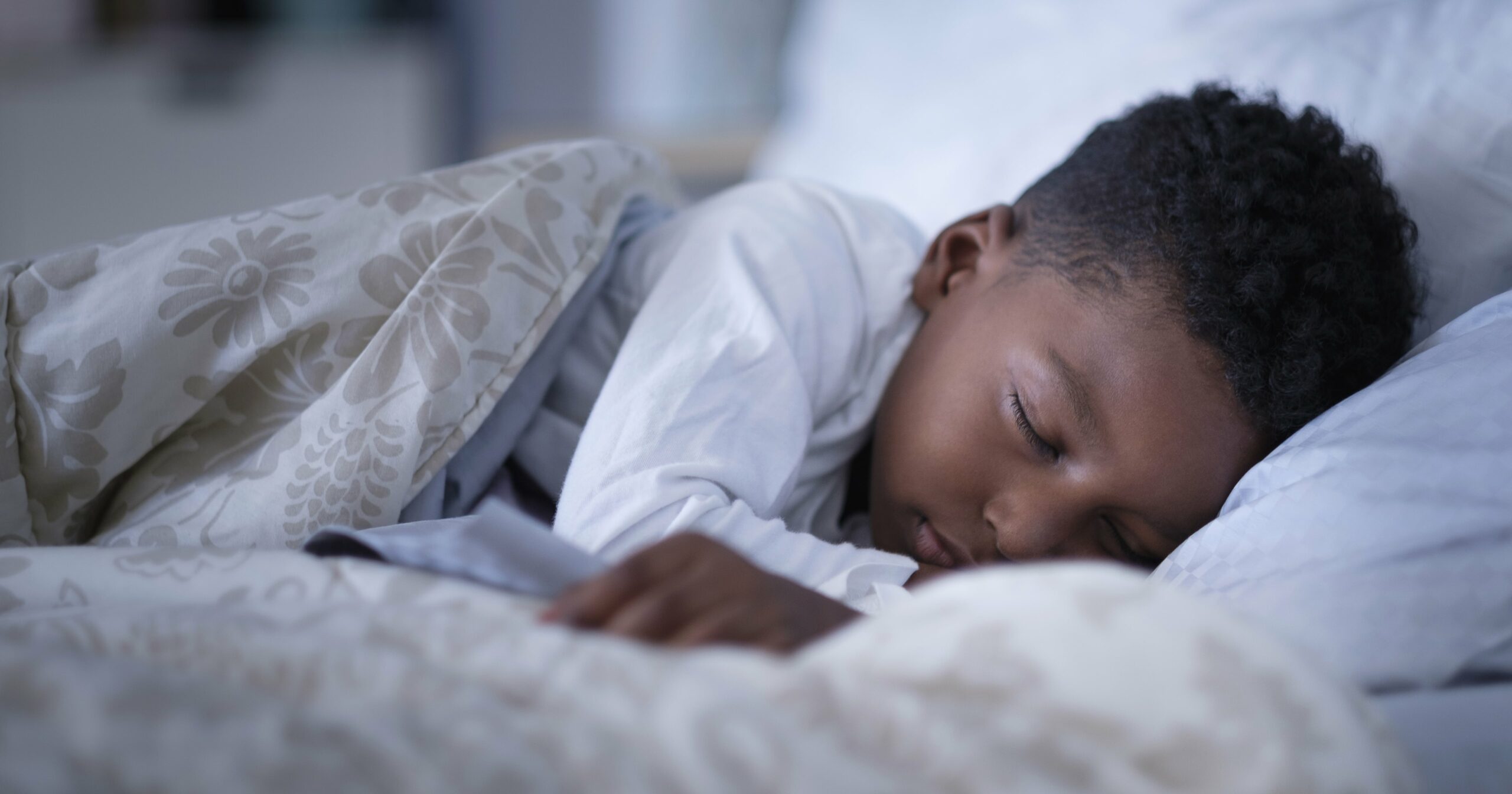You know those nights when you would give up anything to have your kiddo just go to sleep, but it seems like nothing is working? You’ve tried all the go-to suggestions to help your little one get some much-needed shut-eye – from giving them a calming warm bath to turning on a white-noise machine – and still, they can’t keep their eyes closed. That’s when some families turn to alternatives, like melatonin supplements. But a March 2024 report from the US Centers for Disease Control and Prevention (CDC) found that from 2019-2022, about 11,000 children landed in the emergency room after ingesting melatonin unsupervised.
So is melatonin actually safe for kids? Here’s what dietitians like myself really think about the supplement, including whether or not melatonin is safe for kids, the potential side effects of melatonin, and how much melatonin to give your kids, if any.
What Is Melatonin?
Before digging into whether kids should take melatonin, it’s important to understand what melatonin actually is.
Melatonin is a hormone that your brain naturally produces in response to darkness, and it helps with the timing of your circadian rhythms (24-hour internal clock) and sleep.
To get a little nerdy on you, melatonin is released from the pineal gland in the brain in the absence of light, promoting sleep and inhibiting wake-promoting signals (aka this hormone is key for falling asleep and staying asleep).
For some, an extra melatonin boost in supplement form may be helpful in the sleep department, especially if their body doesn’t produce enough. Even expert associations like the American Academy of Family Physicians recommend the synthetic supplemental version of the melatonin hormone for the treatment of insomnia for older adults.
But when it comes to whether melatonin is OK for kids, it is a bit more murky.
Is Melatonin Safe For Kids?
There is some evidence showing that melatonin can shorten the time to fall asleep in certain pediatric populations. But Dallas-based pediatric dietitian Kacie Barnes, MCN, RDN, tells POPSUGAR, “There is a lack of substantial research on the effects of melatonin in kids, so we can’t guarantee that it is safe.” She adds, “Melatonin is sold over the counter and isn’t FDA regulated,” meaning claims of composition on a melatonin bottle might not be true.
In fact, a recent research letter published in The Journal of the American Medical Association showed that a whopping 88 percent of the tested melatonin gummy supplements displayed differences between quantities of melatonin that were listed on the label versus what was actually in the supplement. One of the most startling details of these findings is that some of the tested melatonin gummies had more than three times the amount of melatonin listed on the label. For little bodies, getting three times the melatonin than what was planned has the potential to be problematic.
A similar concern was raised by the March CDC report where researchers noted that the actual content of certain melatonin products is not always the same as the labeled ingredients or strength, and these discrepancies can pose a risk. What’s more, melatonin products do not require child-resistant packaging.
“It seems that most experts recommend proceeding with caution or avoiding melatonin for kids,” Barnes says. “We can’t be sure about the exact concentration of the hormone in these products, and we don’t have enough data about long-term use.”
If melatonin supplements are being provided to kids, they should be taken under the guidance of a healthcare professional and likely, under the supervision of an adult. Melatonin should not be used as a long-term sleep solution, either – unless your healthcare provider tells you otherwise.
Side Effects of Melatonin on Kids
As is the case with any supplement, there are some “watch outs” to look for when giving your child melatonin. Melatonin is believed to be relatively nontoxic for adults when an appropriate dose is taken. In adults, consuming higher doses may be linked to:
- Daytime sleepiness
- Drowsiness
- Headaches
- Nausea
Despite what some people believe, it doesn’t appear that people can develop a tolerance to melatonin, so that concern can be put to rest. The notion that taking melatonin can negatively affect puberty onset has also been relatively debunked, although more quality data is needed to confirm this.
Unfortunately, when it comes to how melatonin may affect kids, there isn’t enough data to answer this question. Anecdotally, it may help children fall asleep, especially if their sleep routine has been affected by a vacation, a school break that doesn’t require them to be on a sleep schedule, or other similar causes.
But perhaps the biggest risk associated with kid-friendly melatonin gummies is the risk of a child overdoing it and taking way too many pills at once – after all, they often resemble the regular tasty gummy treats. According to the Centers For Disease Control and Prevention, from 2012 to 2021, poison control reports associated with children ingesting melatonin gummies increased over 500 percent. More than 4,000 were hospitalized in this study, and sadly, two of those children passed away. If you do choose to keep melatonin gummies in your home, be sure to keep them out of your child’s reach and store them in childproof containers.
How Much Melatonin Should You Give Kids?
According to the American Academy of Pediatrics, caregivers should start with the lowest melatonin dosage when giving it to a child. The association reports that many children can start with a dose of a half or one milligram around 30 to 90 minutes before bedtime. A dose that exceeds three milligrams of melatonin is typically not indicated.
When choosing your melatonin supplement, ensuring that it is third-party-certified will verify that your choice is labeled appropriately.
Other Ways to Help Kids Sleep Besides Melatonin
“While there’s no magic answer (or magic food or magic gummy) to guarantee your kids will drift off to sleep easily and peacefully, there are things we can do to set them up for success,” Barnes explains. Some suggestions include:
- Ensure that kids have eaten a satisfying dinner within two hours of bedtime. If dinner was more than two hours before bedtime or they didn’t eat much, it’s OK to offer a simple bedtime snack such as a piece of peanut butter toast or a banana and a glass of milk.
- Avoid caffeine in the evening, since this stimulant could affect sleep.
- Establish a consistent bedtime routine, like reading a bedtime story, taking a warm bath, or doing some light stretching, can help kids get some sleep.
- Create a sleep-friendly environment – a quiet, dark, and cool room often aids in promoting sound sleep. Limiting the use of electronic devices at least an hour before bedtime can significantly improve sleep quality, as the blue light emitted from screens can interfere with the body’s natural sleep-wake cycle.
- Ensure your kids get plenty of physical activity during the day so they can sleep better at night.
Bottom line? Melatonin supplements can be helpful in certain situations, but as always it’s best to consult your doctor before starting any new medication, including supplements. If your healthcare provider told you that your child will benefit from taking melatonin, be sure to stick to the recommended brand and dosage that they suggest to keep your child as safe as possible.




